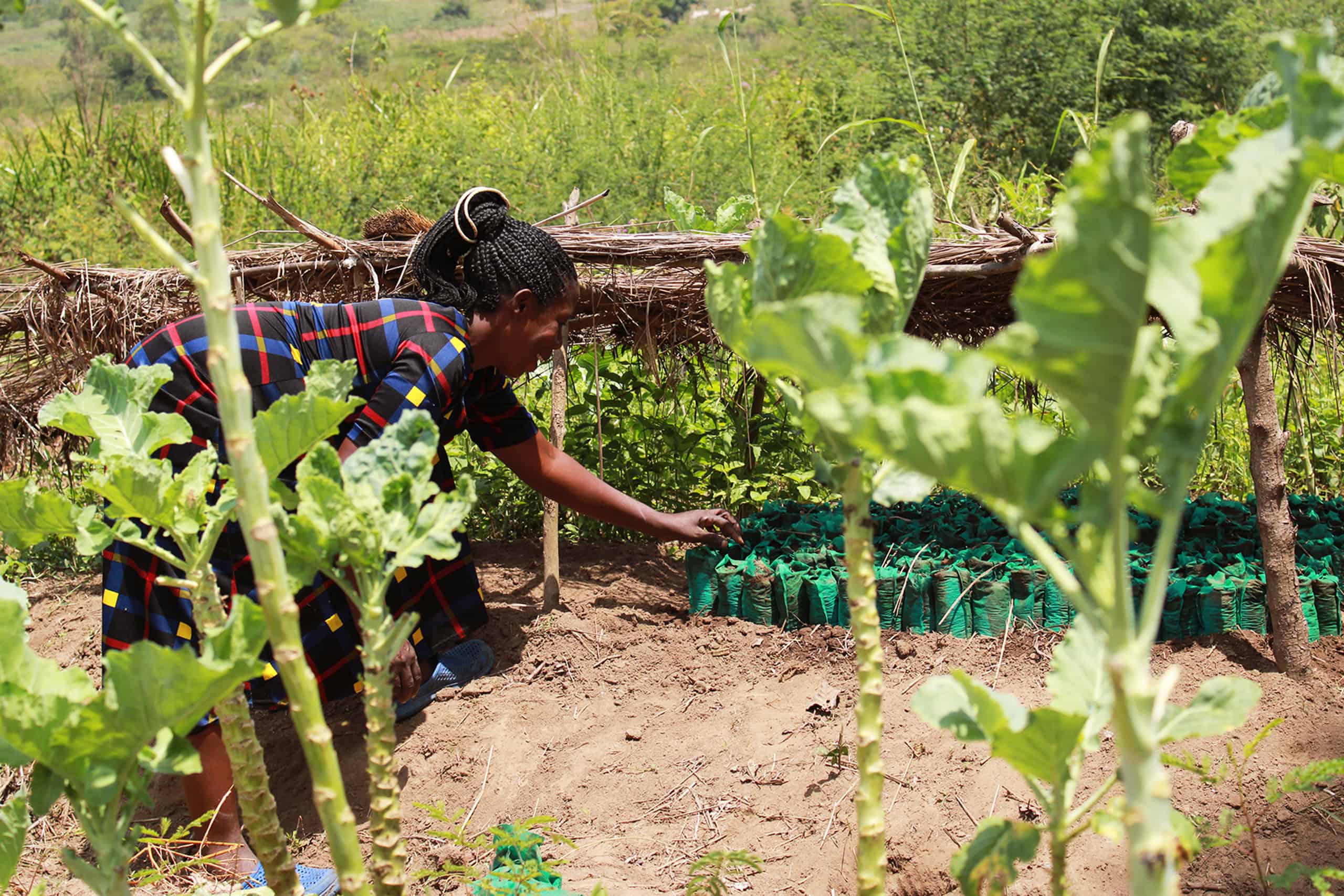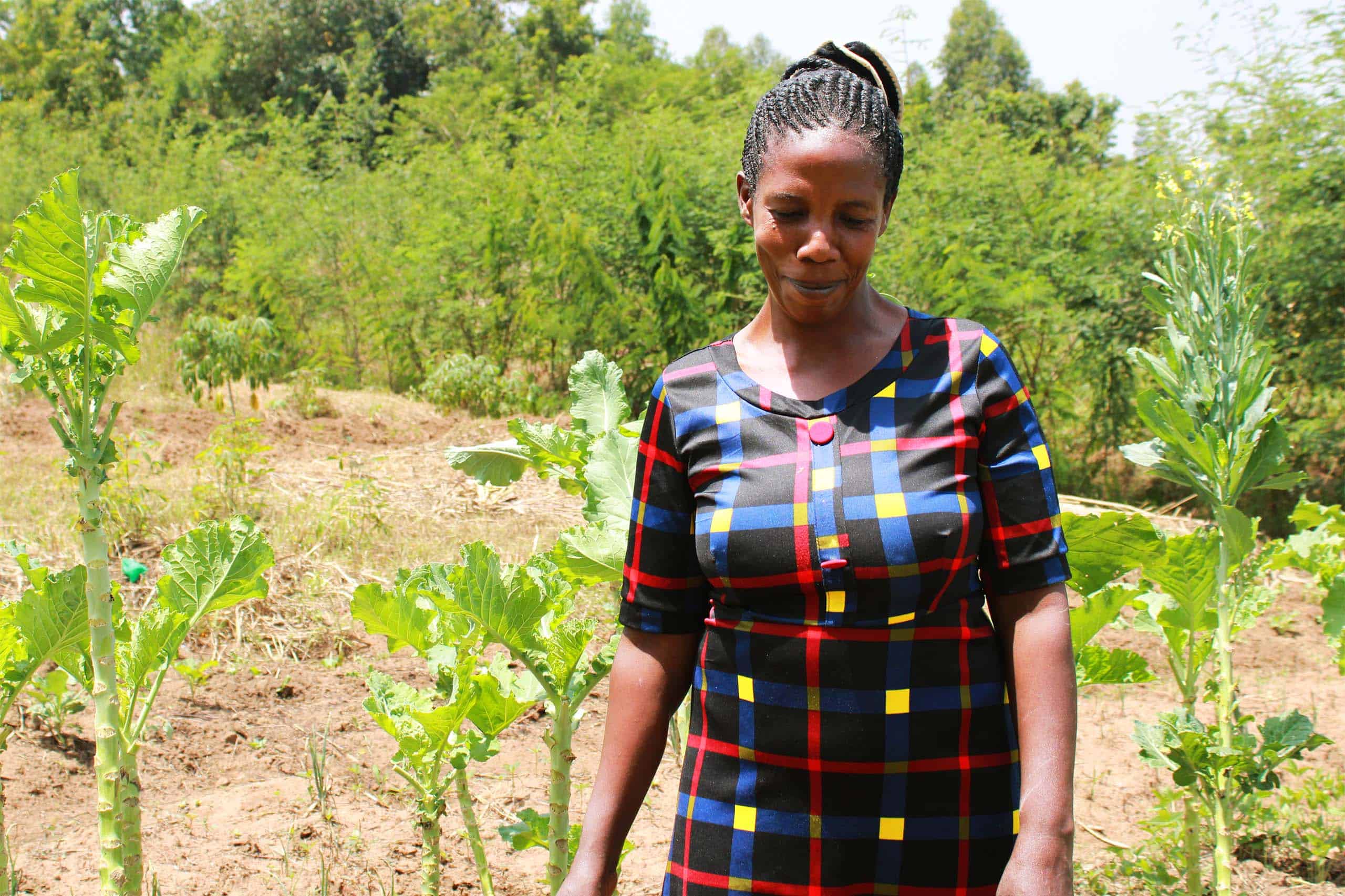When the Forest Garden Approach was first introduced to Ugandan farmer Christine Akello in January 2021, she wasn’t too sure about it. She remembers thinking the various techniques and variety of species would make farming her land more difficult.
“The project started off hard for me, I thought it had a lot of work and so much to implement but it is so different for me now. I can already see the change and my perspective has changed,” she says.
Just a year after joining Trees for the Future’s (TREES) Forest Garden training program, Christine’s skepticism is gone and her hard work is paying off.
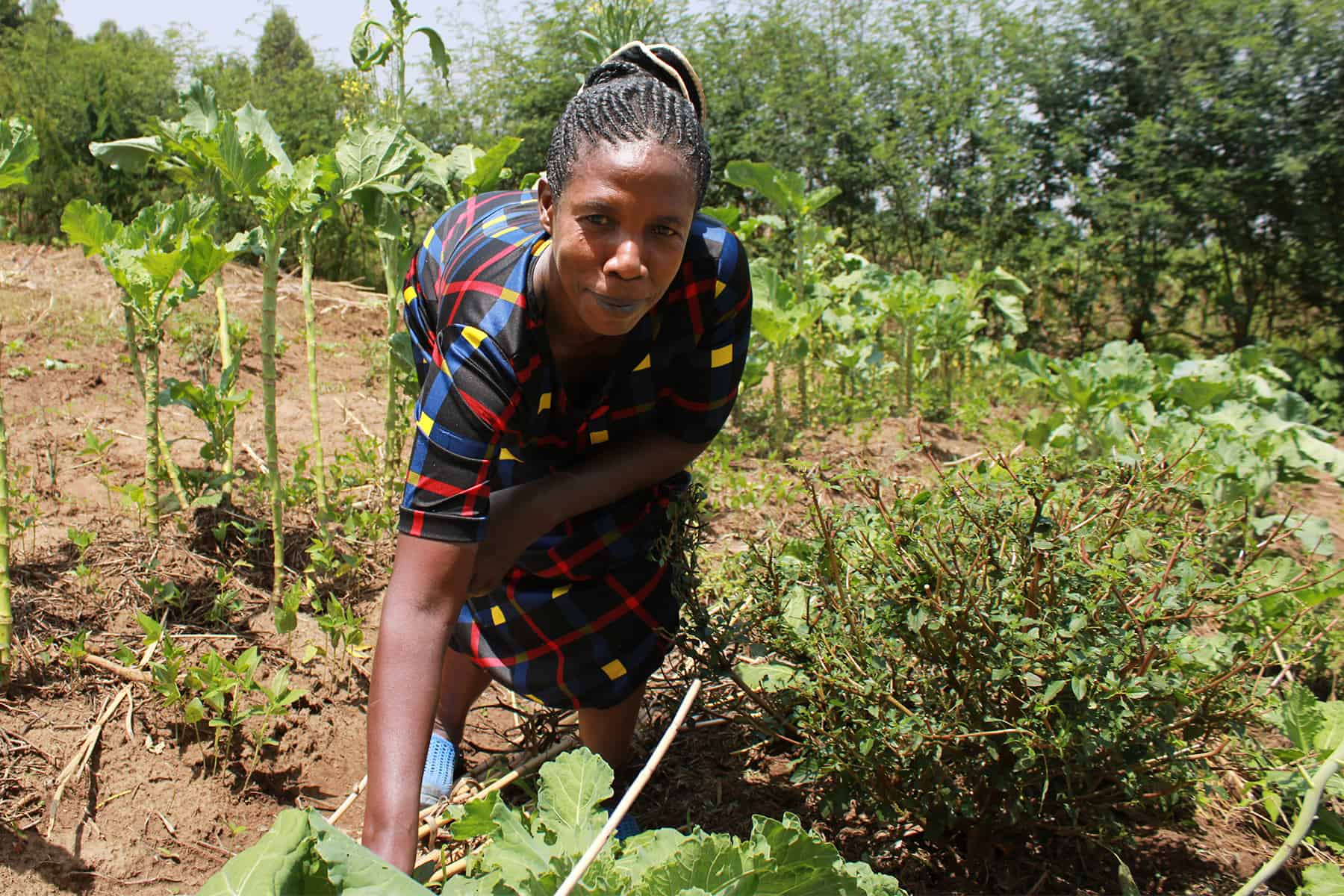
Christine’s new income comes from selling the wide variety of vegetables that grow in Forest Garden – such as sukuma wiki, a nutritious kale-like leafy green.
“I do not buy vegetables anymore from the market, I am now the one selling them to people,” she shares with joy. “I opened a stall in Masaba town and I sell my vegetables and some for my fellow members who do not have stalls.”
Christine is the Lead Farmer of Mudondo Esinani Niko Amani Farmers Group which translates to “Determination is Power.” In the first year of the four-year training program, Christine and her fellow farmers have learned how to protect their land through agroforestry and sustainable and cost-effective techniques like composting. As their soil health improves, farmers are able to grow more to eat and sell. For Christine, that means a healthier, more stable life for her family of ten.
“My [income] bought books for my children and a water drum for storage since we had limited water at home. This drum eases my work in the garden even during the dry season,” she says.
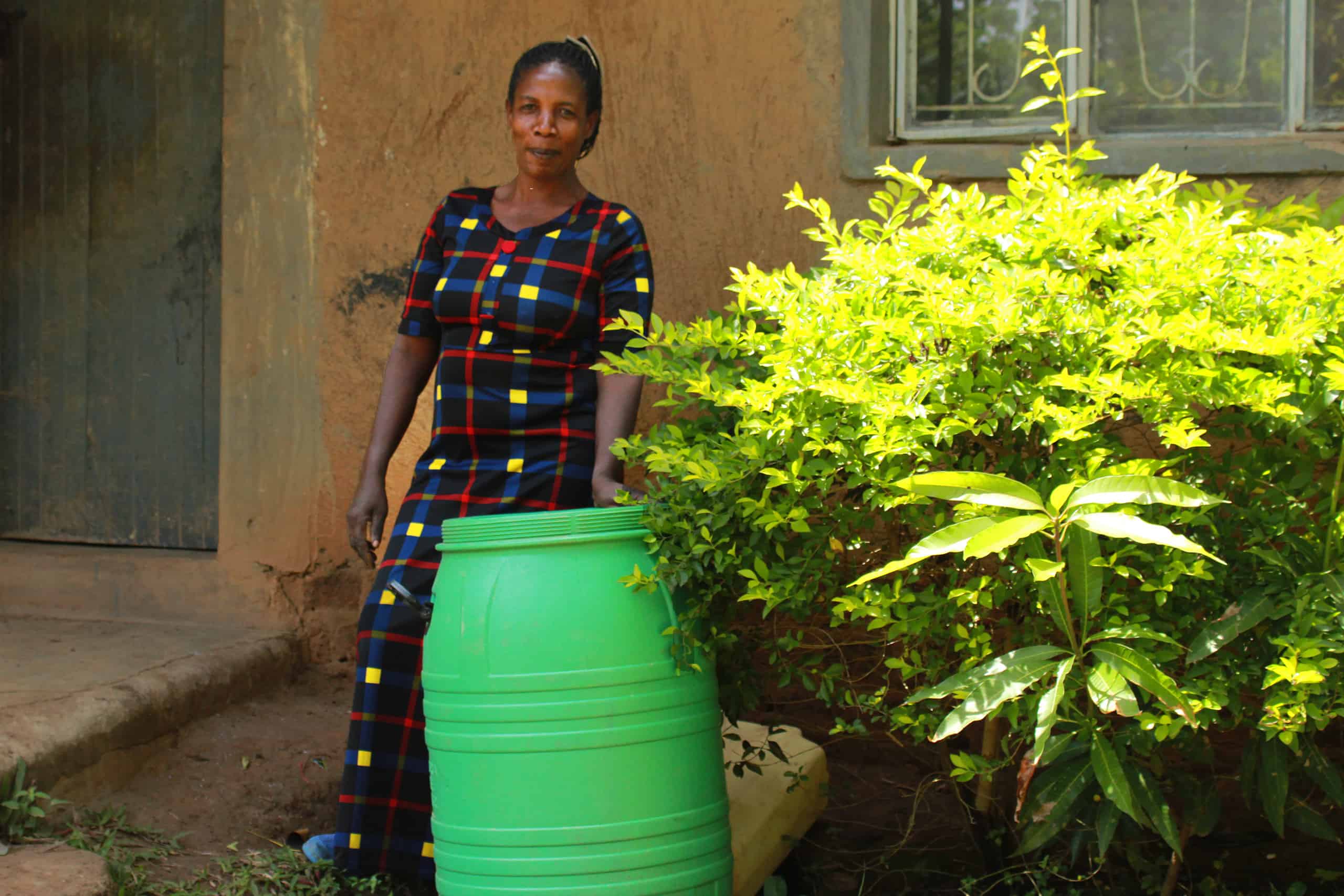
Using the income from her Forest Garden, Christine purchased a water drum to protect water access for her family of ten.
As the Lead Farmer of her group, Christine leads with confidence. TREES Technician Moureen Kisakye says Christine is always going above and beyond to support her fellow farmers as they all work to adopt more sustainable practices.
“She sourced extra vegetables on her own like green pepper, eggplants, and amaranth to add to what TREES provided. She distributed these to her group members to also plant in their gardens,” says Kisakye.
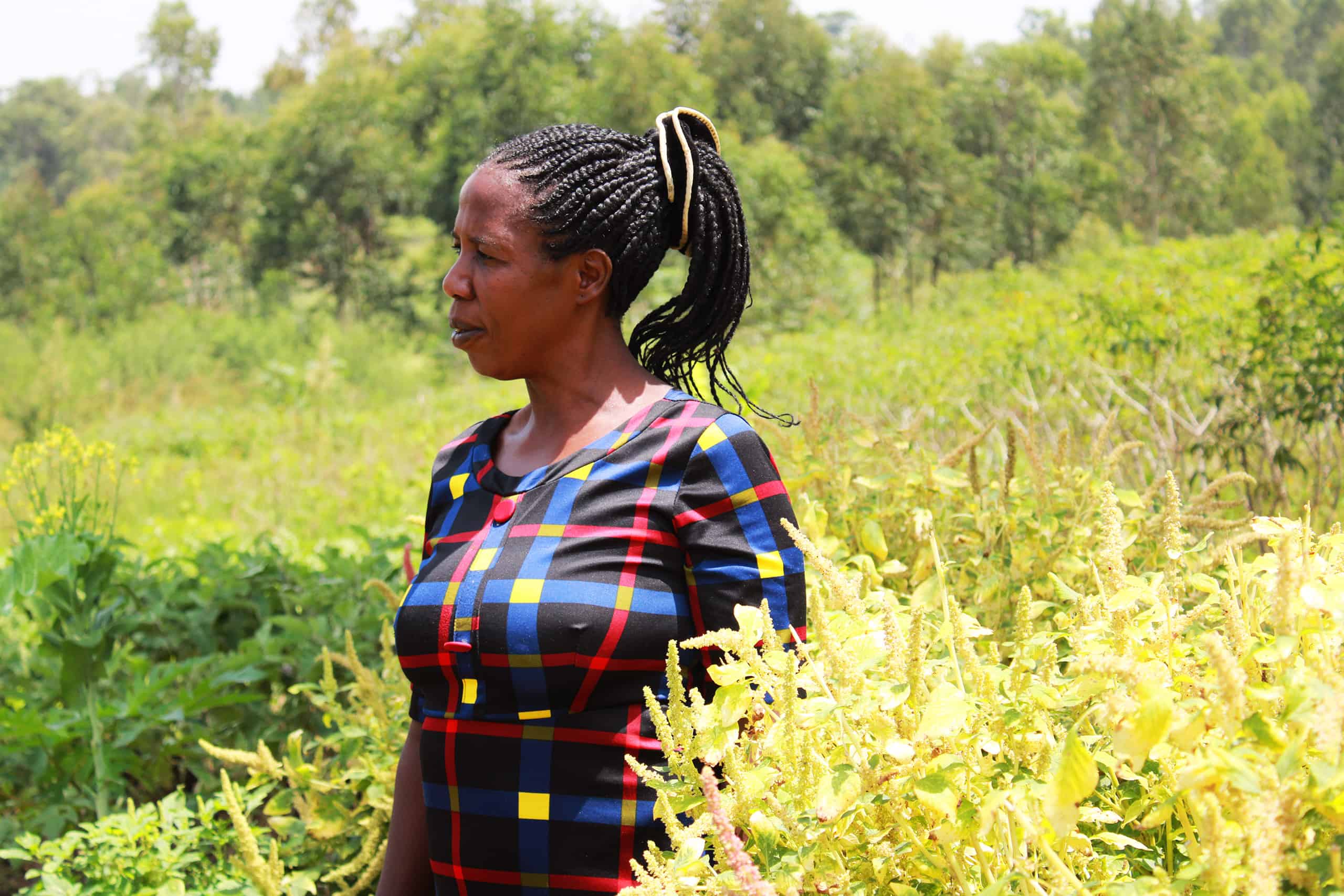
Christine stands in a field of amaranth bushes in her Forest Garden.
Christine and her farmer group continue to live up to their group name – constantly showing their determination to succeed through their Forest Gardens. They recently started a savings group to save money for a rainy day and to improve their homes and gardens. TREES staff encourage this teamwork and resourcefulness in farmer groups to stimulate growth and help farmers build a strong support system and sense of community.
TREES is currently working with more than 5,900 farmers in Uganda and more than 33,600 across sub-Saharan Africa. Help Trees for the Future reach more farmers like Christine with a donation, today!
